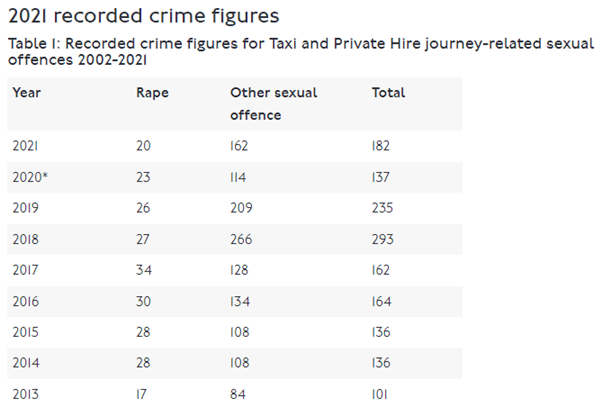Sadiq Khan & the aeroplane test
Is it a good idea to get rid of competency screening?
This week, Sadiq Khan announced that TFL is ‘now pausing enforcement of the SERU requirements’, before adding it was something he’d ‘expressed concerns about repeatedly.’ Below is the full statement he posted the platform formerly known as Twitter;
Sadiq was probably wise to turn the replies off on this because condemnation was largely universal, with people pointing out the obvious ridiculousness of trying to give directions to a driver who can’t speak English – although the ELR also includes comprehension and the ability to read and write.
However, the abandonment of the ELT obscures a bigger issue - the dropping of SERU. SERU stands for the Safety, Equality and Regulatory Understanding, a test that takes less than an hour and cost less than £40. According to TFL’s website it includes;
a) Drivers' obligations under the PHV (London) Act 1998 including the associated regulations and relevant obligations including under the Equality Act 2010;
b) Policies and guidance issued by Transport for London (TfL) or other persons which are relevant to London PHV drivers;
c) The particular needs of passengers that arise because a passenger has (or may have) a protected characteristic under the Equality Act 2010;
d) Protecting children and adults at risk from harm and abuse;
e) Passenger and driver safety;
f) Road and vehicle safety.
TFL’s website also lists their commitment to SERU, which came into place in 2021, as a keystone of their action programme on journey-related sexual offences. Many of these measures were bought in to address sexual assault in taxi cabs, concerns around which built up to a pitch with the conviction of John Worboys in 2019, but which had been rising for some time.
I can say with absolutely certainty that Khan knows this policy change will lower standards because he previously took Uber to the High Court in order to ensure their drivers passed a written English exam, which appeared to be more stringent, lasted for two hours and cost £200. Uber, according to The Guardian, argued that this would have a disproportionate impact on drivers from countries where English was not generally spoken and give rise to “indirect discrimination on grounds of race and nationality”. Khan’s statement at the time read;
I’m delighted that the courts have today backed my plans to drive up standards and improve passenger safety in London.
Drivers being able to speak English and understand information from passengers and licensing requirements is a vital part of ensuring passengers get the high standard of service they need and deserve.
This could include discussing a better route, talking about a medical condition, or ensuring every driver is fully up to date with new regulations.
Khan has of course never spoken about this policy pivot, but it’s reasonable to assume that Khan now agrees with Uber and thinks that the tests are proving too onerous for non-English applicants; according to an FoI request nearly one in three applicants failed to pass the test, preventing over 1,500 unsafe drivers from operating PHVs.
We should judge DEI measures like this by running them through what I call the aeroplane test; if you were a passenger on an aeroplane being piloted by someone you knew had benefited from the policy in question, would it make you more or less worried about the flight? If it would make you more worried, then you’ve prioritised diversity over competence - at the cost of safety.
Even if I do say so myself (and I do), this is a pretty good test to make you think about potential trade-offs between DEI and competency. Our sensitivity to airline safety is heightened because so many of us are fearful of flying; 40% of Americans have a fear of flying, it’s common knowledge that the safest seats are at the back of the aircraft and most of us can name scores of air disasters – Kegworth, Lockerbie, Paris, Germanwings, one of the two Malaysia Airlines incidents. The mid-air blowout of an Alaskan Air 737 went viral because it spoke to many people’s deep-seated insecurities around flying.
Our outsized fear of a plane crash makes us less sensitive to the inherent characteristics (colour, religion, gender) of the pilot and more concerned with their competence to fly the plane safely. Would you feel more or less safe as a passenger on a plane if you were aware your pilot hadn’t had to pass any examination on their ability to, say, speak the same language as air traffic control? Or on passenger and flight safety? Or how to fly the plane safely in all conditions?
Let’s put it this way; what if you knew that one in three failed the pilot’s exam because of it’s rigorous standards, and you knew that on the grounds of ‘indirect discrimination on grounds of race and nationality’ those tests had been dropped, would that make you more or less confident about flying?
The ironic thing is, of course, that flying is significantly safer than driving - although it’s arguable DEI policies have already seen an 83% rise in runway near-misses. The SERU requirements were a very specific policy fix to ensure, in Khan’s words, ‘the highest standards of passenger safety and service from private hire drivers.’ By taking them away, he’s deprioritised both competence and safety, and failed the aeroplane test.
I hope you have a pleasant flight.



